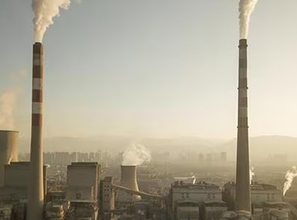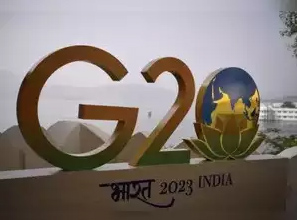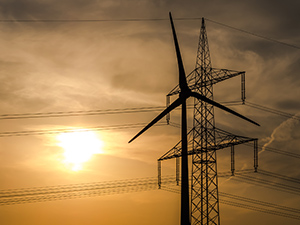
G20 Declaration Reclaims Policy Space and Principles of CBDR: TERI Experts
The Energy and Resources Institute (TERI) welcomes the G20 Leaders’ New Delhi Declaration adopted by G20 countries in New Delhi. TERI which has been active in the areas of energy, sustainable development, and climate for decades is appreciative of the leadership shown by India in its G20 Presidency. This laudable document reflects the capacity and capability of the countries to come together with actionable points for the benefit of the Global South and the world economy to chart a sustainable future.
The G20 is a forum where the largest economies of the world come together to act cohesively and consonantly on world issues and be on one page as far as global negotiations are concerned. While the drivers of UNFCCC (United Nations Framework Convention on Climate Change) are different but the coming together of such large economies merits benefits for the Global South.
India assumed the G20 Presidency from Indonesia in December 2022. As a key intergovernmental forum that aims to seamlessly bring together 20 of the world’s developed as well as developing economies, the G20 plays a critical part in global economic governance. Over time, its ambit has expanded to include climate change, sustainable development, energy, trade, health and agriculture.
India’s year-long Presidency culminated with the G20 Heads of State and Government Summit that took place on September 9-10, 2023, in New Delhi. In the course of the Presidency, India hosted over 200 G20 meetings across the country to deliberate on themes earmarked under the three workstreams – the Sherpa Track, the Finance Track, and the Engagement Groups.
The Energy and Resources Institute (TERI) was engaged with multiple working groups across the three workstreams.
TERI@G20 Sherpa Track
The Sherpa Track has working groups spanning 13 themes which include agriculture, environment and climate sustainability, energy transitions and health among others. TERI is engaged with the working groups on energy transitions, and environment, climate and sustainability.
With the decarbonisation of hard-to-abate industries such as steel and cement being a priority area of engagement for the working group on energy transitions, TERI has been mandated by the Bureau of Energy Efficiency (BEE) to carry out a study on ‘Decarbonising Heavy Industries: Global Policies and Best Practices for Industry Transition’. The international partners of the study are UNIDO, SEI and CEM. The key findings of the study will be presented at an Energy Transitions Working Group IV (ETWG) side event on ‘Sharing Global Policies and Best Practices to Decarbonize Hard-to-Abate Sectors’ in April 2023 at Gandhinagar, Gujarat. The study will feed into the discussions under the ETWG during the Indian G20 Presidency.
TERI is also associated as a Knowledge Partner for the circular bioeconomy theme of Environment, Climate and Sustainability Working Group (ECSWG) of the Sherpa Track. We are also preparing a base paper for the Ministry of Environment, Forest and Climate Change (MOEFCC) whose key findings will be presented at the main segment of the First ECSWG meeting scheduled from February 9-11, 2023, in Bengaluru. The study will feed into the discussions under the ECSWG during the Indian G20 Presidency.
2nd Development Working Group Meeting, Side Event
The concept of just transitions around coal in the context of energy supply and mitigation have gained discursive traction. However, sadly just transitions have recently received more focus specifically on energy supply. Demand side sectors such as agriculture, micro, small and medium enterprises, and transport haven’t found enough space in the socio-economic narratives around just energy transition narratives. There is thus, the scope for factoring in inclusivity in the demand-side interventions more strongly.
It is critical that India’s G20 Presidency play a key role not just in defining the normative contours of what constitutes just green transitions but also in terms of specific proposals that will aid in the development of an international enabling environment for just green transitions, one which considers holistic approaches to resources, energy, climate mitigation, climate adaptation, and integration of sustainable development. Given the transnational and sectoral impacts of climate change, transitions associated with both adaptation and mitigation need to be ‘just’ in nature.
The Energy and Resources Institute (TERI) in collaboration with the Ministry of External Affairs, Government of India, India’s G20 secretariat, and Research and Information System for Developing Countries (RIS), is hosting the side event on the theme “Just Green Transitions” at Backwater Ripples, Kumarakom on April 06, 2023, from 1:45 PM – 5:00 PM (IST).
TERI@G20 Engagement Groups
Think20 Task Force 4
Dr Vibha Dhawan, Director General, TERI, will be chairing the G20's Think20 Task Force 4 on 'Refuelling Growth: Clean Energy and Green Transitions'. TERI will act as the host institution for this Task Force.
Discussions at the Task Force will focus on ways in which the green transition can be mainstreamed, the energy transition accelerated, and transition financing made more urgent and inclusive. It would also look into what can the G20 do in terms of providing technological assistance to reduce dependency on fossil fuels. Additionally, the Task Force will also deliberate on how the green transition can be just and sustainable for all the stakeholders ranging from households, citizens and companies.
From searching for channels to integrate green growth solutions into national development pathways to exploring instruments and institutions needed, domestically and globally, to ensure a swift energy transition in developing countries and building international collaborations, the following are the workstreams that Task Force 4 will be looking into-
- Technology Transfer for Green Transitions
- Climate Mainstreaming and Embedded Green Transition Policies
- Role of MDBs, Blended Finance, New Instruments, and Private Capital
- Assessment of Emerging Energy and Fuel Choices
- G20 & International Partnerships
At the Think20 Inception Conference held on January 13, 2023, in New Delhi, Dr Dhawan chaired the plenary session on 'Finding Consensus on Global Wellbeing: LiFE, Energy Transitions and the SDGs'.
Think20 Task Force 3
Dr Shailly Kedia, Senior Fellow and Associate Director, TERI will co-chair the G20's Think20 Task Force 3 on 'LiFE, Resilience & Values for Wellbeing'. The Task Force will deliberate on the need to create a mass movement for sustainable consumption, where every citizen and stakeholder contributes to the green transition effort.
From discussions around the need for technologies, re-skilling initiatives, financial support through the development of robust, just, and inclusive economic systems, to exploring a new measurement matrix of well-being beyond GDP, the following are the workstreams that the task force will be engaged in-
- LiFE and Promoting Sustainable Consumption
- Building Integrity and Ethics into the Architecture of Financial Institutions
- Growth Measurement and Approaches on Wellbeing
- Catalysing Investments for Disaster Resilient Infrastructure, Cities, and Societies
G20 in action: How collective effort drives development and keeps 1.5 degree C target within reach
The world is on the path of crossing the 1.5°C guardrail as early as 2026 (WMO, 2022). The twin challenges of stabilizing climate change in the long-term and slowing the rate of warming in the near term have to be tackled urgently to reduce the risk of extreme climate events. Collective action from the G20 nations can play a key role in accelerating climate action that effectively limits CO2 and non-CO2 greenhouse gases (GHGs) emissions and scale such efforts by unlocking climate finance by developing an investible project pipeline.
At the official G20 prelude to the World Sustainable Development Summit 2023, co-hosted by TERI and the Institute for Governance & Sustainable Development (IGSD), key ambassadors from G20 countries addressed the challenges and opportunities for collective action to accelerate and scale climate action and deploy climate finance in this decisive decade
TERI@G20 In The News
Adaptation measures key to robust climate response
13 July 2023 | Dr Vibha Dhawan, Dr Shailly Kedia | Hindustan Times
The world must prioritize adaptation, loss and damage funding at COP28 for a holistic climate response at the next Global Stocktake, says Dr Vibha Dhawan, Director General, TERI, and Dr Shailly Kedia, Senior Fellow and Associate Director, TERI


A funding solution for developing nations’ climate challenge
26 May 2023 | Mr Manjeev Singh Puri | The Indian Express
While the G20 committee will focus on several aspects of reforming the MDBs, their governance and the issues of developing countries' debt, climate financing in developing countries also needs to be accorded a high priority.
Cities as global actors: Enhancing urban leadership at G20
30 Jan 2023 | Ms Rhea Srivastava| The Economic Times
When countries negotiate climate action at high-profile international forums, local perspectives and leadership largely remain on the sidelines. According to UN predictions, by 2050, 75% of the world’s population would reside in urban areas. As a result, local leadership and governance will have an increasingly significant global impact, writes Rhea Srivastava, Research Associate, Transport and Urban Governance Division,


How will India as G20 President steer Energy Transition?
28 Dec 2022 | Mr R R Rashmi | The Economic Times
G20 leadership is an opportunity for India to shape the energy transition dialogue on its own terms. Prime Minister's personal commitment to the principle of Lifestyle for Environment may be a good basis for India to convince the rest of G20 about the legitimacy of transition that is just for both present and future generations.
TERI Policy Briefs and G20 Contribution























